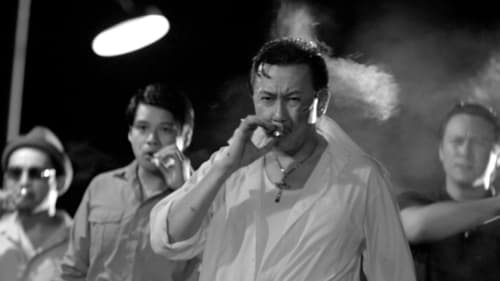
Editor
Mobster Asiong Salonga (ER Ejercito) rules the mean streets of Manila with an iron fist—until he is betrayed by a trusted friend. Manila Kingpin is based on the story of the notorious Tondo, Manila, gang leader Nicasio “Asiong” Salonga, whose true-to-life accounts had been portrayed in several movie versions since 1961 (starring Joseph Estrada). It is also the first Filipino major film produced in black-and-white in the 21st century as well as the returning action genre movie. Before the film was shown, Tikoy Aguiluz requested the producers, through his lawyers, that his directorial credits in the film and promotional tools be removed because the final version of the film can no longer be described as his after the producers made a reedit, re-shoot and music mixing without his involvement. He also demanded that he be allowed to make a director's cut of the film.

Editor
A ritual performed by women to invoke the gods to grant the blessing of fertility by dancing around a Balete tree that was already a century old.

Screenplay
A ritual performed by women to invoke the gods to grant the blessing of fertility by dancing around a Balete tree that was already a century old.

Editor
Minda, in her forties, is having a torrid affair with the younger Dave, and is trying to hide it from her husband Chito. Dave is an occasional tattoo artist. He also plays drums in a rock and roll band that has a difficult time finding gigs, now that the US Navy has left Subic Bay. One day Stephanie, a Philippino-American who came to the Philippines on a cultural discovery tour, turns up at Minda's house claiming she is her daughter, whom she gave away for adoption twenty years earlier. Stephanie has questions about her adoption that Minda is unwilling to answer. Dave arrives and takes Stephanie out, much to the annoyance of Minda.

Editor
Dr. Jose Rizal was exiled in Dapitan from 1892-1896. These were his last four years. Dapitan served as his prison cell. He always compared it to “a beautiful cage” where he is imprisoned. This was the longest imprisonment Rizal ever had. He became so lost by those times, but still he did not lose his mind. Even there, he continued studying and discovering things. He continued his conversation with his friends, scientists and doctors outside the country.

Screenplay
Dr. Jose Rizal was exiled in Dapitan from 1892-1896. These were his last four years. Dapitan served as his prison cell. He always compared it to “a beautiful cage” where he is imprisoned. This was the longest imprisonment Rizal ever had. He became so lost by those times, but still he did not lose his mind. Even there, he continued studying and discovering things. He continued his conversation with his friends, scientists and doctors outside the country.

Editor
Conrado Balweg, dedicated himself to the service of God but while he was assigned as a parish priest in Cordillera in the Mountain Province, events transpiring around him forced him to take up arms to rescue his people from the greed of developers from the lowlands, and from a government who was unsympathetic to the plea of the indigenous tribes to save their ancestral lands. In the war which ensued with the arrival of the military forces, Fr. Balweg was forced out of his parish and into the mountains, where he later became one of the most charismatic of leaders, admired by the masses, hated by the government and loved by many women.

Editor
An erstwhile boatman wants to do a little more than paddle his own canoe in the town famed for its waterfalls. He leaves the village of his roots for the city and lands a job as a live-sex actor called toro in street lingo derived from the Spanish term for bull. Quick successes in his newfound profession delude him into regarding that the measure of a man is in his trousers. He has a partner on stage and off. Despite her cynicism and tough veneer, she sees in him a way out of the slums and the red light district.







